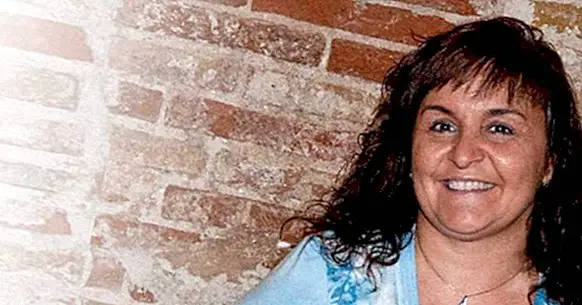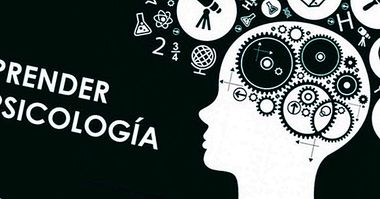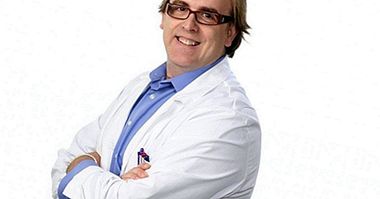Psychologist Yolanda Segovia talks about depression and its characteristics
We have all felt sadness at some point in our lives, something that can be normal in situations that cause us a lot of pain. For example, when our partner leaves us or when we do not pass an important exam for us.
But When the sadness is prolonged in time and seriously affects our life, we may suffer depression , a psychological disorder that must be treated in order to recover our mental and emotional well-being again.
- Related article: "The 6 differences between sadness and depression"
We interview the psychologist Yolanda Segovia
At present, the depression is spoken with total normality, and statistics show that it affects 2.4 million people in Spain.
In today's article we interview Yolanda Segovia, Collaborator of the Mensalus Institute of Barcelona, considered one of the best psychology clinics in our country, to help us understand what depression is and what we can do to overcome it.
Jonathan García-Allen: According to data from the World Health Organization, depression has increased markedly in the last decade. What do you think is the cause of this fact?
Yolanda Segovia: Yes, it has increased noticeably, being one of the mood disorders with the most prevalence at present. I believe that there is no single cause, but the interaction of biological, psychosocial and personality factors. If we are talking about the last 10 years, it may be due to the economic crisis that has caused loss of work, generating numerous associated difficulties, but also to the increase in life expectancy, the higher level of stress we experience and the consumption of toxic substances. . These could be factors that explain that growth, in addition to stressful life events, medical alterations or neurological disorders, among others.
What is the difference between sadness and depression?
Sadness is an emotion that arises in the face of the feeling of loss, which can be of a beloved person, a job, a breakup of a couple, a personal capacity ... Depression, however, is a frequent mental disorder, where the constant manifestation of sadness is a characteristic, in addition to the loss of interest in previously enjoyed activities, inability to carry out daily activities, for a continuous period of time.
May also manifest some of the following symptoms, loss of energy, alteration of appetite, changes in sleep habits, difficulty concentrating, memorizing and / or maintaining attention, feelings of guilt or despair and thoughts of self-harm or suicide.
How can we identify if we are depressed?
We must present central symptoms of depression, such as pathological sadness, loss of interest and ability to enjoy, as well as a decrease in the energy that conditions the level of activity and produces excessive exhaustion. In addition, we can observe irritability, pessimism about the future, loss of self-confidence or the aforementioned symptomatology.
We must also observe the persistence of symptoms over time and their severity, in order to differentiate a change in our habitual functioning from the clinically significant discomfort that deterioration entails in some area of our life.
It is common for many people to go to the family doctor when they experience the first symptoms of depression. However, scientific studies claim that psychological help is key to overcoming this disorder. What are the benefits of going to the psychologist when a person has a depressive disorder?
Exactly, it is common for depression to be diagnosed and treated in primary care, although sometimes the patient is referred to the psychiatrist or psychologist.
It is beneficial to go to the psychologist because the intervention allows a holistic treatment, addressing thoughts, emotions and behaviors and promoting changes that allow a more adaptive functioning to the person suffering from a depressive disorder, also taking into account the work in the prevention of relapses. Another benefit that I find important to emphasize is that the process will be centered on the person, considering their individual differences.
How effective is psychotherapy in these cases?
Psychotherapy has shown a similar efficacy, even slightly higher, according to some studies, than pharmacological treatments.
Although combined treatment is frequent and effective, there are numerous analyzes that consider that psychological therapy should be the treatment of choice, since it shows a percentage of efficacy slightly higher than the pharmacological, lacks the adverse effects of this and works to prevent relapses While it is true that we must take into account the severity of depression.
** When a person suffers from depression, is it essential to use drugs? **
Depends on the severity of the depressive episode, in severe cases the combined approach seems the most appropriate, while in mild or moderate episodes the psychotherapy may be sufficient.
What types of depression are there?
I think that a very broad, if clear, way to differentiate the types of depression would be to distinguish between endogenous or biological and non-endogenous or reactive depression. In the first, the genetic component mainly influences and less external factors, in the second, of psychological origin, influences the lack of adaptation to external stressors. We can also differentiate dysthymia, which is of chronic evolution and is related to personality characteristics.
In addition, another possible classification would be to specify in detail the different depressive disorders according to the diagnostic manual DSM-5, which in its latest revision considers several types of depressive disorders, assuming bipolar disorder and related disorders as a differentiated diagnostic category.
Can we do something to prevent the onset of depression?
Some protective factors of depression can be, enjoy a good valuation of ourselves, recognize and trust your own resources, appreciate the small details of our lives, have a relational network that values us, supports us and makes us feel good. Also, live in the present, valuing what we have and not putting all our attention on what we lack. As well as doing physical exercise and dedicating time to pleasurable activities.
How can family members help a person with depression?
For a person with depression, the support of their immediate environment, the understanding of their situation, respect and acceptance of their difficulties is transcendental.
It is important that family members recognize how depression manifests itself, what are its symptoms and risks in order to attend them or request urgent help if necessary, it may also be necessary to know the effects of the medication, if it is taken.
Although the symptoms presented by the family make coexistence difficult, it is important that they trust that they will disappear with the appropriate treatment, and above all that they do not believe that they behave like this to attract attention or to disturb. If you have any doubt, it is always best to consult a professional.
They can also help the family member by encouraging them to seek help and to follow the agreed guidelines in the therapeutic process that contribute to their improvement and / or request family assistance to help them learn together effective ways to cope with depression.
What advice would you give to a person who is going through this situation?
I would suggest that you seek help to take the necessary steps to reduce your suffering. Also, I would encourage you to choose, introduce or maintain in your life only what you do well.



















